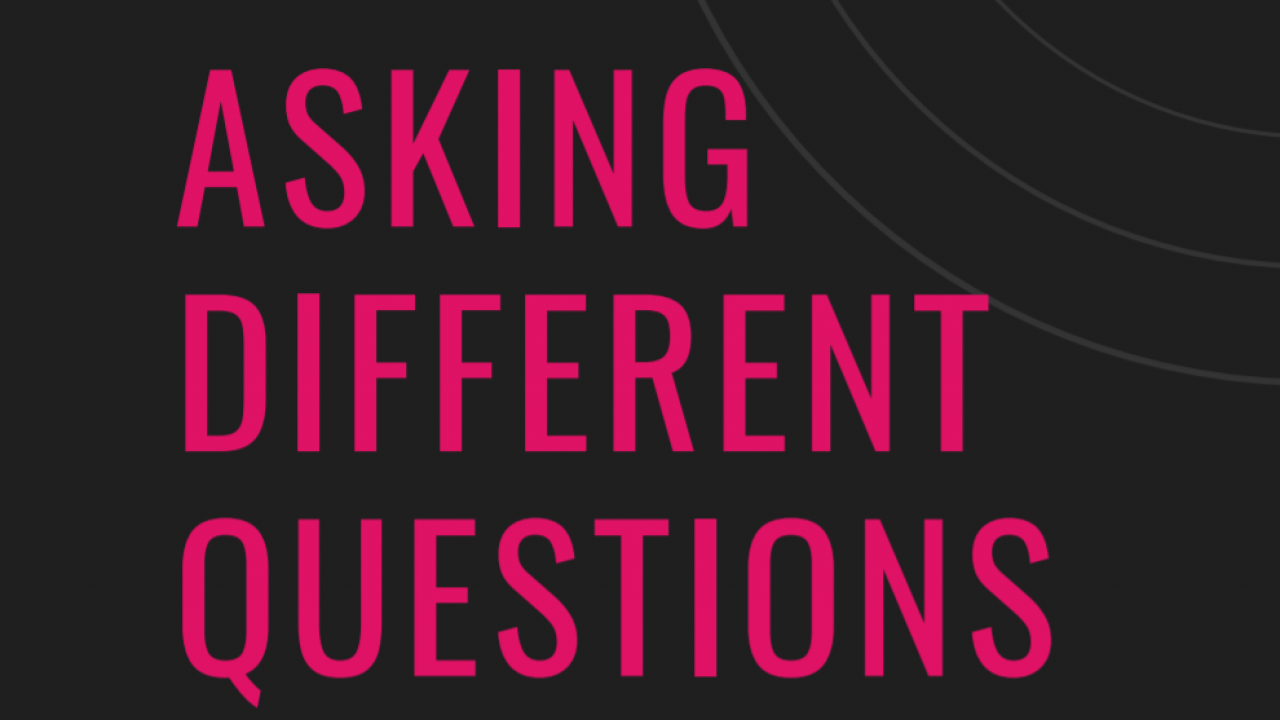
An Update on Crafting the "New Normal" of Research Culture
In the wake of the Covid outbreak, our interdisciplinary science initiative, Asking Different Questions. hosted a discussion on crafting the “new normal” of research culture. As part of the Asking Different Questions initiative, we hosted a community of scholars dedicated to addressing long standing inequities in research and research culture.
Faced with a global pandemic and dismantled social safety nets, this group of researchers asked: how is this moment reshaping how we approach our research? How can we best grow a commitment to justice-oriented research during these times. What follows are some thoughts shared in that session by Associate Director Sarah McCullough, who is the co-PI on the National Science Foundation grant funding this work.
Positive thinking was never a strong feminist trait, as any good feminist killjoy knows. Rather, our feminism is grounded in the realities wrought by historical oppression and its legacies. From there, we can more productively vision a better way of moving. Thus, this meeting was not a place to figure out how to maximize productivity, how to keep the research machine rolling as people around us are sacrificed, suffer, and die, or how to crank out another article as your children watch Frozen II for the 20th time this week. We were not interested in discussing how to “buck up” and adjust as waves of depression, apathy, despair, anxiety, or anger roll over us. Rather, we embraced the vastly differential realities we were all experiencing based on our life circumstances and social position.
We are in a moment when our bodies are the problem and the reason we must isolate. Our bodies can infect each other through a laugh, a sneeze, a handshake. Because we are embodied and living in a world rife with inequity, all of our bodies are the problem right now.
This reminds us that the “life of the mind” has always been very embodied. This is something we are all facing now, as we seek to protect our own and other’s physical bodies from viral spread. Now is the time to reckon with this reality, and search for a way to do research that accounts for the very real limitations and possibilities of our physicality. Doing research in a way that fully counts for the realities of our lived experience and bodily needs and desires is more honest. While traditional notions of objectivity might strive for an imagined disembodied observer, this ideal is imaginary. How can we make better knowledge by accounting for the complexity, risk, and care of our bodies? Because of this, I’m reflecting on what matters most to me, what my values are, and what got me into doing research in the first place. I’m also thinking about the body, life and resources I have now, and how this is built on my own privilege.
My values are emerging in this. I care deeply about embodiment, about challenging “normalcy,” about surfacing the ways we live contrary to our own values. Because of this, I feel compelled to point out that in “normal times,” one must occupy a position of privilege to not notice one’s embodiment as a researcher. Black, indigenous researchers of color and trans and queer scholars face constant reminders that their bodies and lived experiences make them ‘other’ in the research space. Bodies that bleed, birth, lactate and care for young, aging and ill bodies are also made acutely aware of how they differentiate from the ideal researcher body. Those with disabilities live in a world that never tires of telling them the many ways they do not belong, fall short, or otherwise deviate from the norm in unacceptable and troubling ways. This is also to say nothing of the immense class habitus, norms, and affectations of academia.
Because of this, right now I’m looking to black feminists, indigenous activists, the disability justice community, protesting essential workers (thanks for finally calling them what they are, rather than “unskilled”) and those who engage in and value care work. I’m looking to mutual aid, pod-making, community support—whether that community is local or virtual. I’m trying to figure out how to do more than survive this moment—rather, I want to get a better handle on how we can do something different. I want to make all this suffering into something more livable.
To learn more about the next Asking Different Questions conversation, join our listserv and mark that you are interested in Asking Different Questions.